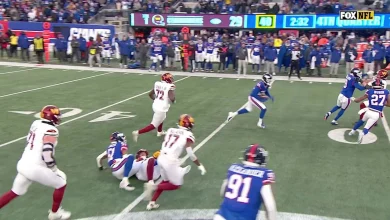Childhood illness linked to dementia risk later in life, alarming study finds

In early October, one of the largest-scale studies was released, demonstrating the connection between the shingles vaccine and the risk of dementia.
The Centers for Disease Control and Prevention states that the shingles vaccine is the only way to prevent the disease and other complications related to shingles. About one in three Americans will have shingles in their lifetime, and the CDC recommends that adults 50 and older and those with weakened immune systems get vaccinated.
Anyone who has had chickenpox in their lifetime will carry that virus in their bodies for the rest of their lives, and the virus that causes chickenpox also causes shingles infections.
The researchers’ findings, published in the journal Nature Medicine, reveal evidence that vaccination against shingles may help lower the risk of dementia and protect the brain.
This research is critical, as recent studies highlight that the risk of developing dementia for Americans 55 years and older is 42%. This risk assessment has more than doubled the projections from older studies.
In 2025, researchers project about half a million cases of dementia, and by 2026, the disease will rise to about a million cases per year.
What the study revealed about shingles and the connection to dementia
Researchers analyzed the health records from over 100 million individuals that were seen at more than 7,000 hospitals and clinics across the U.S., between 2007 and 2023.
They controlled nearly 400 different variables, including demographics, lifestyle factors, doctor’s visits, and more, and found a 27% to 33% lower risk of developing dementia over three years after patients received the shingles vaccine.
Furthermore, the study found that those who experienced multiple episodes of shingles were associated with a 7-9% higher risk of dementia three to nine years after the second outbreak compared to those with only a single shingles episode.
How does this study aid dementia research?
While a number of dementia cases are linked to aging adults in the U.S., the disease is also linked to genetic factors, such as “high rates of hypertension and diabetes, obesity, unhealthy diets, lack of exercise, and poor mental health,” per NYU Langone Health.
Most types of dementia cannot be cured, so this research aids in finding a pathway to lowering the risk of dementia in older adults. As of right now, doctors can only provide ways for dementia patients to manage their symptoms.
The study’s findings suggest that those who have received multiple doses of the shingles vaccine have a lower risk of dementia compared to a single dose of the vaccine.
This new analysis backs up an April 2025 study published in Nature, in which Stanford Medicine researchers analyzed the health records of older Welsh adults and found that those who received the shingles vaccine were 20% less likely to develop dementia in the seven years following, compared to those who didn’t receive a vaccine.





